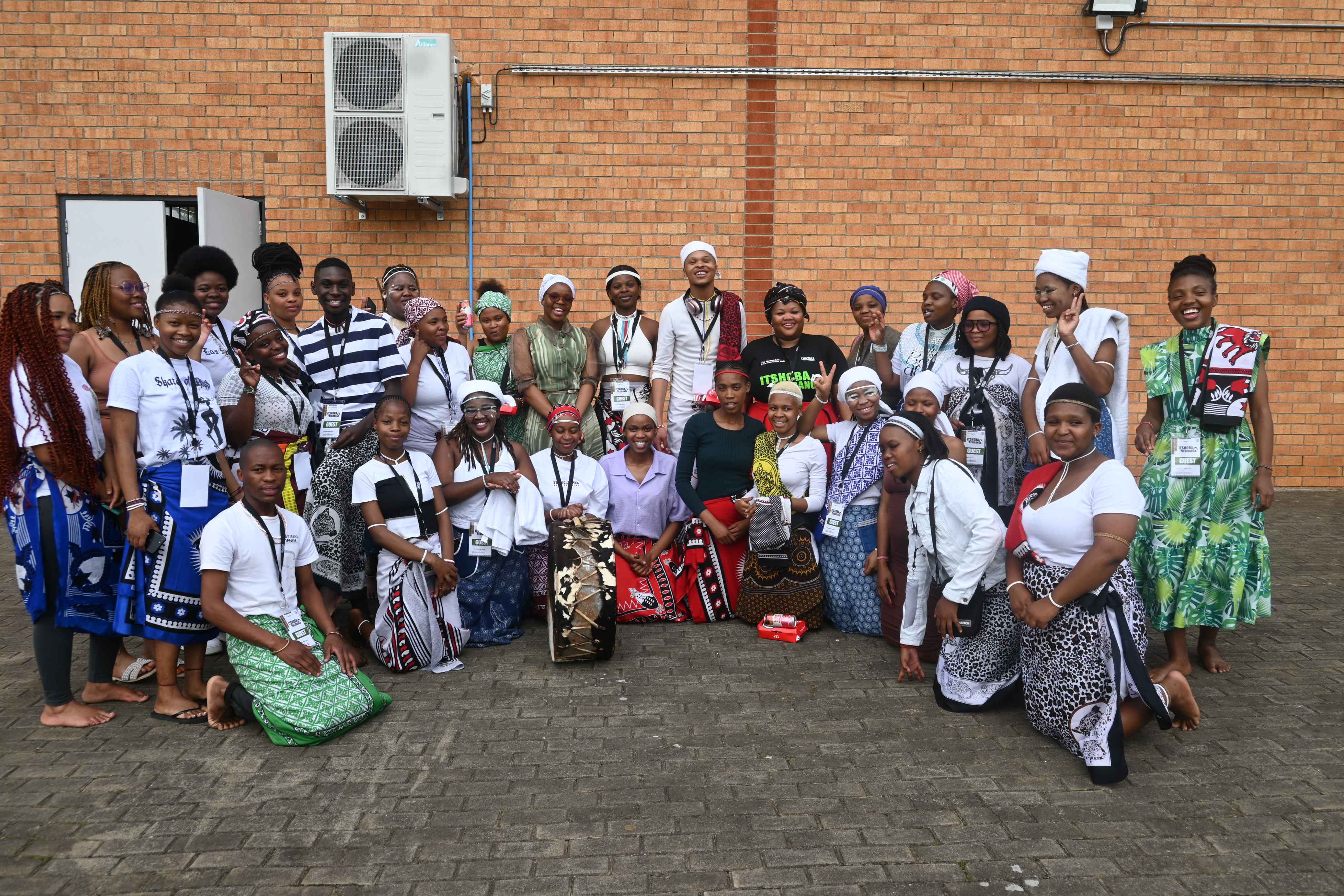WSU HOSTS GROUNDBREAKING DIALOGUE ON SPIRITUAL CALLING IN HIGHER EDUCATION
Walter Sisulu University (WSU) has reaffirmed its commitment to being a technology-infused African university and a center of academic excellence by initiating a critical conversation on spirituality and spiritual callings in higher education, especially for African students.
The event, themed "Itshoba Nesidanga," was hosted by WSU Student Life and Co-Curricular Unit last week and highlighted the need to balance academic success with spiritual recognition for students experiencing spiritual callings.
A spiritual calling is a personal experience where an individual is chosen by their ancestors or higher powers to fulfill a spiritual role, like becoming a traditional healer (Igqirha).It can disrupt academic and personal life by causing emotional stress, health issues, and feelings of isolation, especially if the calling is ignored.
Students may need to take time off for initiation or struggle to balance academic demands with spiritual duties, leading to delays in their studies, due to a lack whofen there is no understanding and support, ultimately leading to those affected feeling overwhelmed or stigmatised.
With an increasing number of students embracing their spiritual paths—such as becoming iGqirha—the event urged students, staff, and stakeholders to acknowledge the importance of aligning academic and spiritual dimensions of education. This integration is deemed essential for holistic development.
WSU Student Life and Co-Curricular Unit Manager Khanyisa Mbali said the unit saw it fit to bring experts with a wealth of knowledge and start up the conversations around African spirituality.
“This is based on numerous incidents encountered by the unit in servicing students in their living and learning communities. Learning communities are growingly affected by issues of African spirituality,” she said.
She added that programmes such as Ithsoba Nesidanga are student centered and aim to establish guidelines and policies for student life.
The event featured renowned African spiritual leaders, including Dr. Loyiso Nqevu, who addressed misconceptions surrounding spiritual callings.
Dr. Nqevu emphasised that while higher education shapes students academically, many also face spiritual callings that should not be dismissed or neglected.
He reflected on how colonial systems historically stripped Africans of their spiritual identities and cultural heritage, leading to the internalisation of oppressive views by some members of the black elite.
“Higher learning institutions are where students are shaped academically, but it is crucial for dialogues like this to revive acceptance of spiritual callings,” Dr. Nqevu said, advocating for universities to implement policies that support students’ spiritual journeys without compromising their academic pursuits.
Dr. Bazamilebohlulakala Christine van Zyl, a consultant from the University of the Western Cape, echoed this sentiment, calling for enhanced psycho-social support for students.
She noted that the dialogue was part of an ongoing effort to address gaps in student well-being.
“This is a call for wellness and indigenization. We need to educate how far a spiritual calling can extend; it can significantly impact one’s health,” Dr. van Zyl said.
Students responded positively to the event. Agcotywa Waka, a second-year IT student, remarked, “I learned a lot about African spirituality and the calling. It’s important to have dialogues like these to open people’s minds.”
Nkosinathi Dyantjie, a second-year Bachelor of Education student, expressed hope for more inclusive programmes that reach the wider WSU community, suggesting a deeper exploration of different spiritual concepts in future discussions.
WSU's Executive Director of Student Affairs, Dr. Irene Mohasoa, underscored the importance of creating an inclusive environment for students grappling with spiritual callings.
“By addressing spirituality in higher education, institutions can promote holistic development, foster diversity and inclusion, and enhance the overall academic experience,” she said.
Deputy Director of WSU’s Student Life & Co-Curricular Unit, Nobuhle Mpambani reiterated the necessity for policies that recognize and support both students and staff with spiritual callings.
“Just as we embrace academic innovation, we must also respect and nurture spiritual innovation. No one should undermine another person’s spiritual journey, especially in a university aimed at shaping well-rounded individuals,” Mpambani emphasized.
Through initiatives like "Itshoba Nesidanga," WSU is making significant strides in recognizing the cultural and spiritual needs of African students. By acknowledging spiritual callings within a university setting, the institution fosters respect and inclusion, enhancing a holistic understanding of education.
By Yolanda Palezweni

